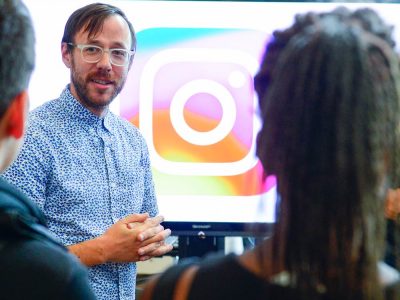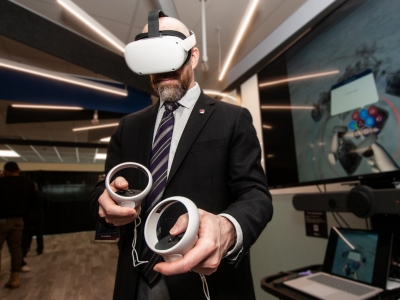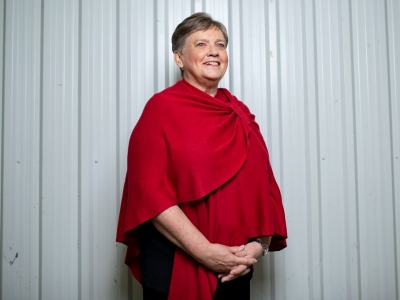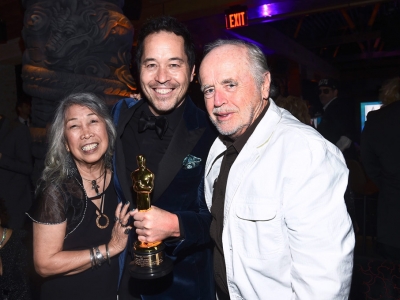By Leah Coppella
Photos by Mike Pinder
Carleton University’s Faculty of Engineering and Design hosted its second annual Breakthrough Breakfast on March 3, 2020 celebrating International Women’s Day and International Womxn’s Week in Ottawa – spearheaded by Invest Ottawa.
A capacity crowd comprised of industry partners, alumni, faculty and students attended the event at Kanata’s Brookstreet Hotel, which featured the work of two graduate-level women researchers, along with an interdisciplinary team of progressive and sustainability focused fourth-year undergraduate students.
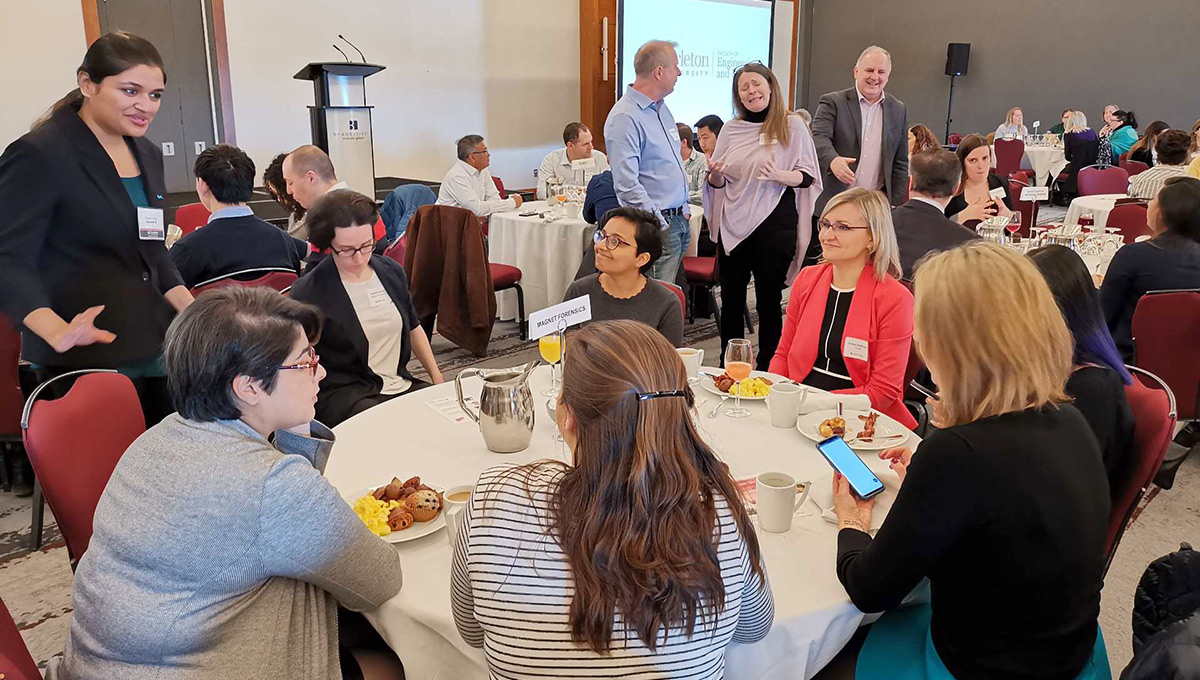
Members of the community network at the Second Annual Breakthrough Breakfast.
Cynthia Cruickshank, associate professor in the Department of Mechanical and Aerospace Engineering, emceed the morning’s event, noting it as one of many taking place across the city in honour of International Womxn’s Week.
“It’s really a way to showcase the wonderful research at Carleton,” said Cruickshank.
“Whether it’s through the programs that Carleton offers for youth or to prepare women before they enter the industry, I think that Carleton is providing role models for those students, especially for those women that are going into a career that is typically male-dominated.”
Guest speakers included Sara Nabil, a postdoctoral fellow at Carleton’s Creative Interactions Lab who is looking into how the integration of technology into everyday objects can help people’s health and well-being.
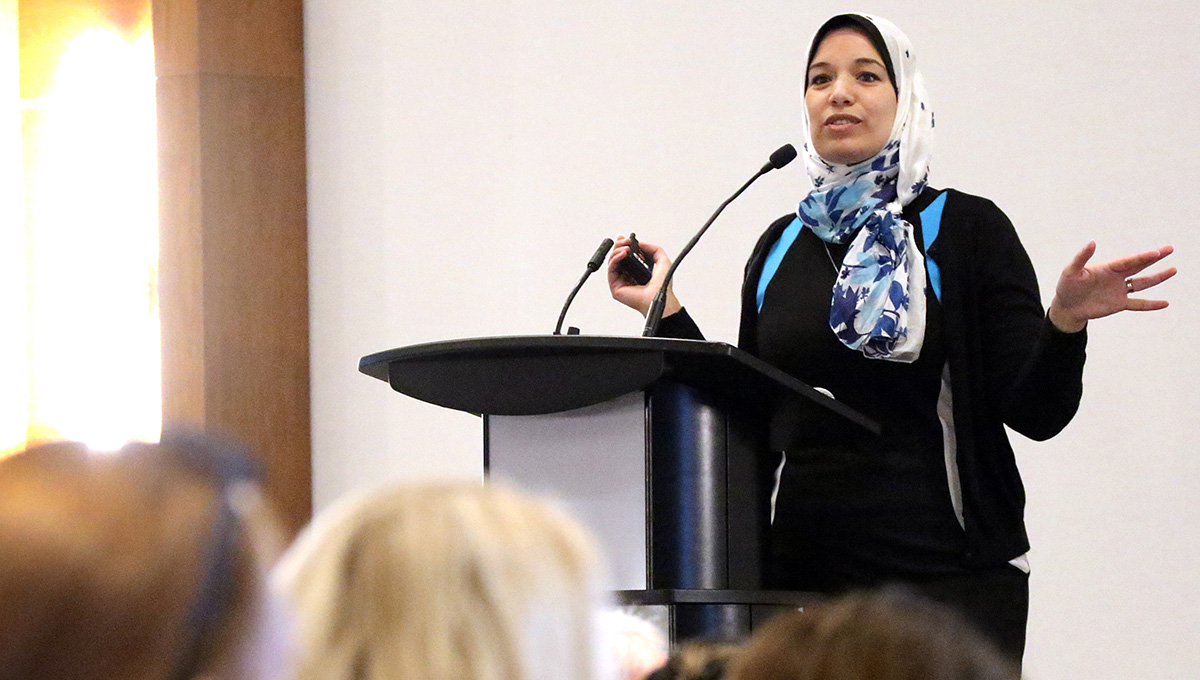
Dr. Sara Nabil, a Postdoctoral Fellow at Carleton’s Creative Interactions Lab, presented innovative digital fabrication techniques that can enable technology integration into everyday objects, wearables and surfaces to support people’s health and well-being.
Nabil noted how her childhood dream was to study architecture and interior design, and that later in life – after eight years of being a software developer – she finally asked herself: what if I can bring human-computer interaction and architecture together?
Today, her research focuses on how décor can do more.
“What if everyday objects had interactive abilities?” she asked. “What if they could morph their appearance to fit the needs of the humans that use them?”
By integrating interior design with interaction design, Nabil uses smart materials such as soft sensors, fabric circuits and e-textiles to create objects that can change colour and even move on their own, mimicking actions such as taking slow, steady breaths.
Nabil took attendees through the possibilities. “What if a backsplash could change patterns when cooking? Or if stroking a blanket could mean a faraway friend receiving the touch?”
She also shared her advice for young women everywhere: “Bring your knowledge to your passion and change the game.”
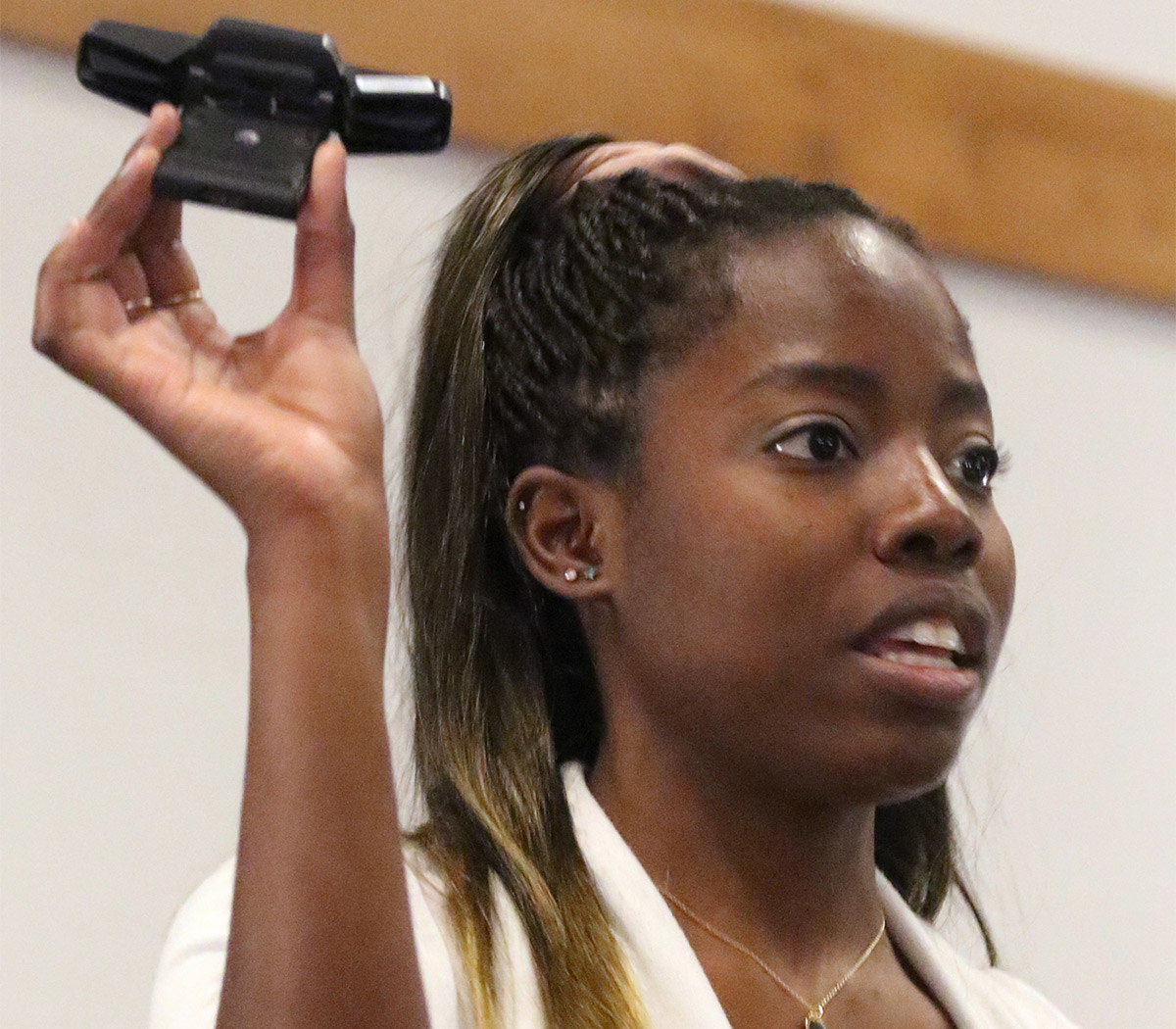
Biomedical Engineering PhD candidate Yasmina Souley Dosso discussed her research on utilizing computer vision and deep learning to create a non-contact and non-invasive patient monitoring system for use in neonatal intensive care units.
Yasmina Souley Dosso, who is pursuing a PhD in Biomedical Engineering at Carleton, also spoke in front of a full house at the event. Her thesis involves the application of computer vision and deep learning to create a non-contact and non-invasive camera-based patient monitoring system for the neonatal intensive care unit (NICU).
Souley Dosso calls the system “Machine Vision.” It records patients over time, collecting data from temperature checks to respiration through face detection, feature extraction and face tracking.
Boreal Builders, an interdisciplinary Capstone design project team comprised of engineering students in Architectural Conservation and Sustainability, Civil, Environmental, and Sustainable Renewable Energy, also took the stage.
The team is equitably focused on working with the Kiashke Zaaging Anishinaabek – Gull Bay First Nation in designing a regenerative, modulate and integrated housing solution shaped by sustainability and climate resiliency.
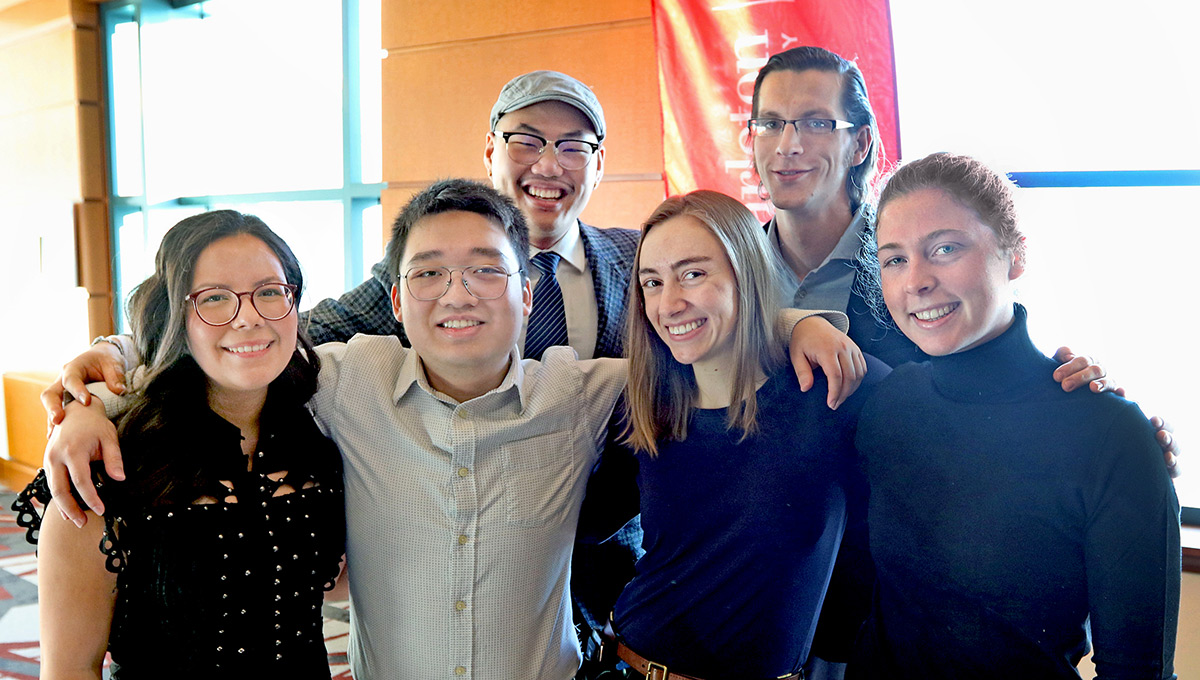
(From left) Fourth year undergraduates Isabella Carias, Andre Markus, Eric Ho, Jonique Gardien, Joshua Reinhart, and Caroline MacSween showcased their interdisciplinary Capstone design project focused on developing sustainable housing solutions through collaboration with the Gull Bay First Nation community.
In directly collaborating with members of the Gull Bay First Nation, project lead Jonique Gardien and her group look to create a housing solution that tailored to meet the specific needs of the community that aligns with their de-fossilization efforts.
Gardien also said the team would be working within a framework of intersectionality.
“For our project, intersectionality can be applied to engineering work,” she says. “And I don’t know how often those words have been used interchangeably with each other in industry.”
Caroline MacSween, a team member, says that being intersectional in all of their approaches was very important to the group, especially when diving into anti-colonial theory.
“We realize that with the different things we bring to the table, we have a stronger delivery on our design.”
The Boreal Builders project will provide a housing solution that is open concept and concrete-free, with reliable heating and made with locally sourced materials. The team will deliver its final design in April 2020, with the hopes that aligned construction processes could result in a build time of two to six weeks during the summer.
Attendees such as Adrian Chan, a professor with the Department of Systems and Computer Engineering, commended the scope of the event.
“Carleton is known for being committed to an inclusive community, which includes women in STEM,” Chan says. “Carleton is one of the largest English engineering universities in Canada and so having such a large university be a big part of that conversation is vital.”
Cruickshank says that while the faculty is particularly invested in women in STEM at the annual Breakthrough Breakfast, supporting women in all opportunities is vital to building them up.
“Diverse ideas will better the world, not only for women, but for everyone.”
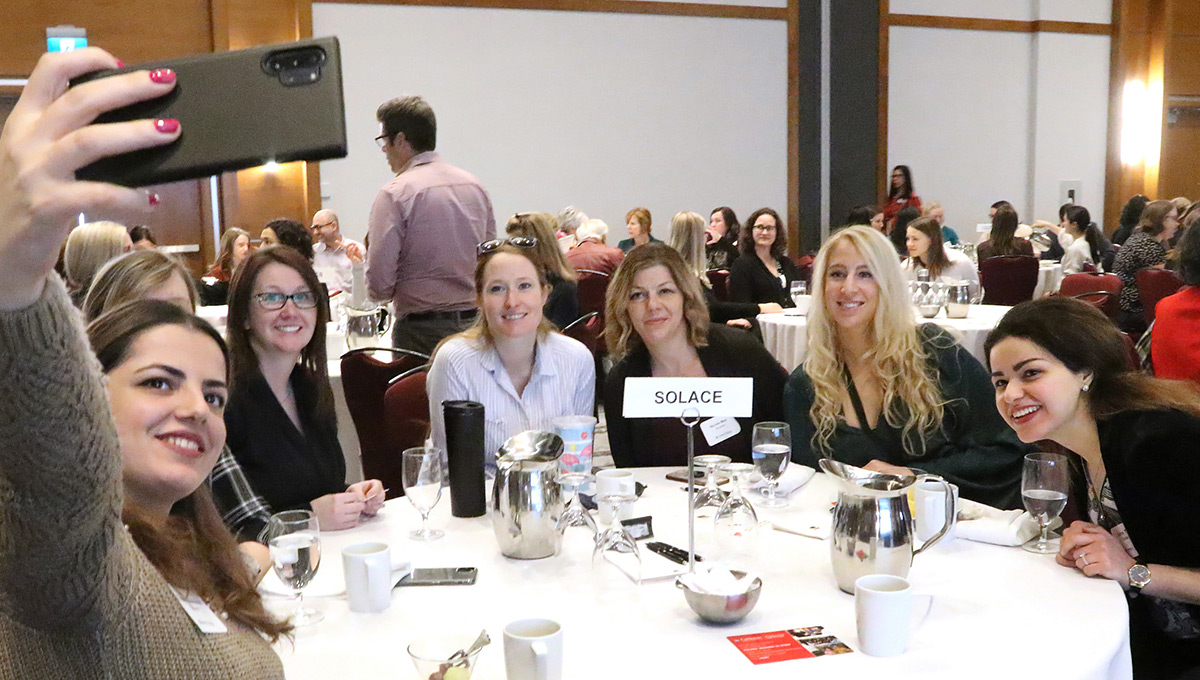
Friday, March 6, 2020 in Events, Faculty of Engineering and Design
Share: Twitter, Facebook
